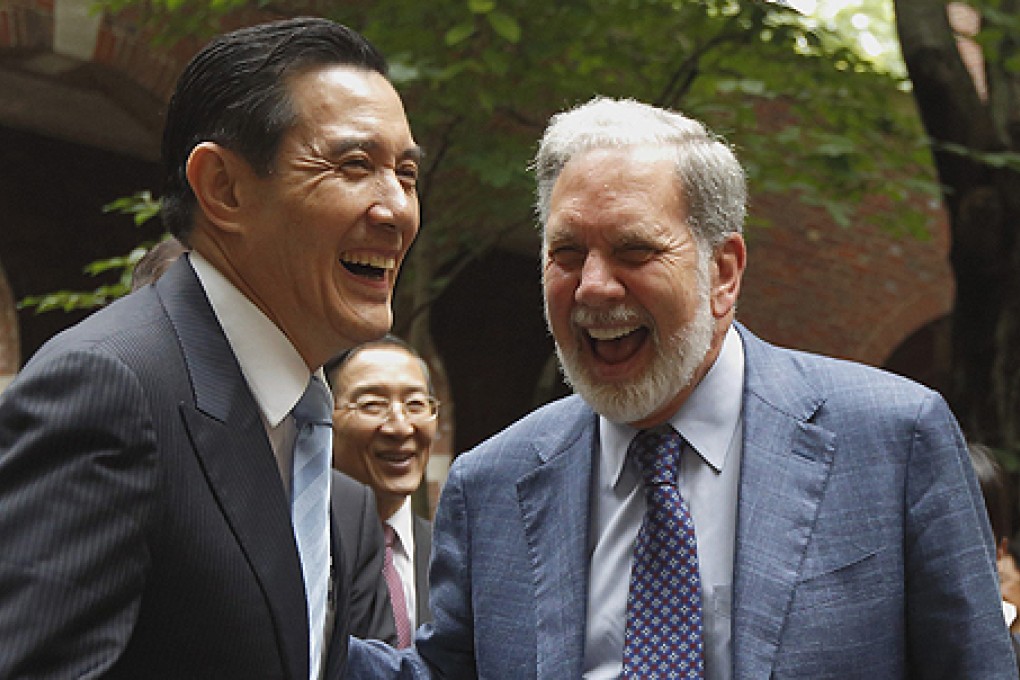Beijing bites lip over Taiwan President Ma's US stopover
Mainland's silence over Taiwan president's swing through New York is sign of Communist Party's 'new understanding' with cross-strait rivals in Taipei

Taiwan's President Ma Ying-jeou wrapped up his low-key but diplomatically significant stopover in New York and headed for Paraguay and the Caribbean yesterday, without having triggered any protest from rival Beijing.
During his 40-hour transit visit, Ma engaged in a series of activities carrying diplomatic significance, such as having breakfast with New York Mayor Michael Bloomberg and meeting US Representative Ed Royce, chairman of the US House of Representatives Foreign Affairs Committee, and ranking committee member Eliot Engel.
He also visited the site of the September 11 attacks in New York, toured the campus of his alma mater New York University, and met business executives and representatives from Chinese-American communities. Taiwan's state-run Central News Agency quoted Bloomberg as saying after the hour-long meeting with Ma that the United States was very lucky to have an ally like Taiwan.

Neither the Foreign Ministry in Beijing nor the cabinet-level Taiwanese Affairs Office commented on Ma's activities. Beijing once opposed any overseas visits by officials from Taiwan, which it still regards as a renegade province. Washington switched diplomatic recognition from Taipei to Beijing in 1979.
Former president Lee Teng-hui's stopover in the US and his high-profile visit to his alma mater Cornell in 1995 set off a crisis across the Taiwan Strait. Beijing protested to the United States when then-president George W. Bush approved a stopover in New York in 2001 by Ma's predecessor Chen Shui-bian.
In 2006, Chen was asked to transit in Alaska rather than a major continental US city and nearly called off his trip following a protest from Beijing.